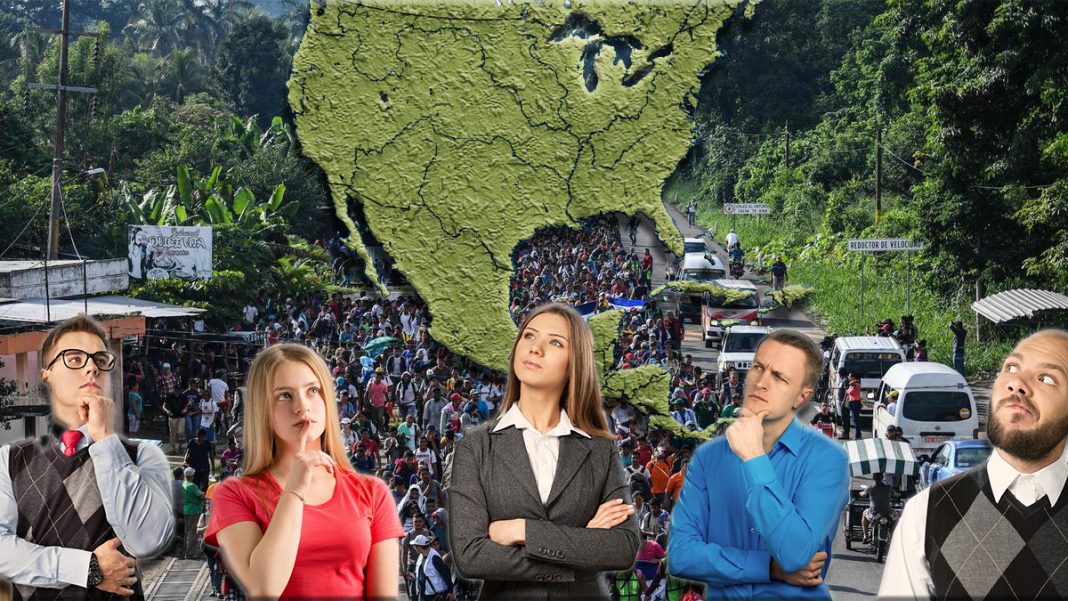Topeka, KS — A recent survey conducted by the non-partisan Rundex Family Foundation discovered that the overwhelming majority of Americans have no idea where Honduras is. More perplexing is that a complete 75% didn’t realize the impoverished and war-torn country was located in North America.
“Well, the data doesn’t lie,” said Rundex lead researcher Robert Colvin speaking from his Mountain View, CA home office. “We surveyed over 27,000 people and received an A+ rating from Nate Silver for our methodology. Suffice to say, over 92% of Americans couldn’t locate Honduras on a map. Even when we labeled the country with ‘Honduras,’ 62% still could find it. And even more troubling, when we put our finger on the country, a whopping 42% asked what time lunch was.”
Recently, a large ‘caravan’ of Honduran refugees left the troubled country on a 1600 mile trek to the United States. In 2009, the impoverished former colonial country underwent a coup by the Military, which removed the Leftist President from power. The United States supported the coup. Since then, the Military has clamped down on fundamental human rights while flourishing organized crime. Because of these dangerous conditions and many other reasons, many impoverished families fled Honduras.
However, due to inaccurate media coverage and the general geographic denseness of the American public, this has led to an unfounded fear stoked by the President of the United States and his supporters that this group of refugees is some “invading army.”
“I don’t care about these Mexicans,” said Dallas resident Jamie Cowars referring to the Honduran immigrants. “The President has told us that they’re ISIS anyhow. And I’m telling you, real Americans will not put up with them invading us. Call out the Military and shoot them when they try to cross. This will teach them, Democrats, a lesson on how not to pay for these kinds of things.”
When asked to identify Honduras on a map, Mr. Cowars seemed confused.
“I think you mean Mexico, and it’s right here.” At which point he identified Columbia. “My Mama didn’t raise no fool.”
“There are many reasons Americans are so geographically ignorant,” continued Mr. Colvin. “It’s largely because there’s no real incentive to understand geography. The United States is the dominant power in the world. Why learn anything? However, this lack of understanding has some serious pitfall that leads to troubling foreign policy decision-making. I mean, if you don’t understand nor have empathy for others in different countries, it makes it easy to bomb them or, in this example, call refugees invaders.”
Although this is a preliminary survey, Mr. Colvin says an additional study is needed because he noted that a sizable chunk of Americans couldn’t locate the United States on a map.






